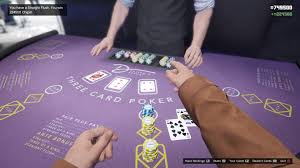For most of us, we think of poker as a game of chance or luck. Those of us who have played the game, like Chris Moneymaker, understand the chance factor; those of us who have not, are simply standing by and doing nothing – not even traveling to Vegas or playing online in the first place.
There are, however, those of us, particularly in poker, who think of poker as a game of skill. Judging by our understanding of poker odds and our familiarity with poker variants, we assume that it’s possible to overcome the might of the poker machine and the probability of the poker game.
Those of us in the know, however, believe that poker is, first and foremost, a game of skill. Poker involves skill in deciding what cards to hold and which ones to discard; it involves, in other words, our poker picks. Those of us who understand poker odds, in other words, understand what the chances of getting a particular card are; we know what the odds of getting a particular card are against us and against our opponents. When we’re told the odds we understand immediately where those percentages pertain to in poker, we can calculate our chances of having the card we believe we need. We then, in turn, determine how much to bet in order to appropriately cover those possibilities.
There is, however, a deeper level of poker theory than that. In fact, beyond calculating poker odds and distress probabilities, there are many other factors that can affect your decision making. In this deeper level, beyond calculating odds and probabilities, we believe that there are fundamental laws of poker, that hold true no matter how skilled the person playing, no matter how lucky the person being paid.
One of these laws is known as the Independent Chip Model. According to the DewaGG, there are infinite amounts of chips, in a multi-table tournament if not in a cash game, and each player’s stack of chips is equivalent to an arm and a leg. So every player has the same probability of getting their hand, no matter what their stack is in relation to another player’s. What this means is that regardless of your stack, you don’t have to play very many hands to win. You don’t have to risk a lot to win big, because there’s no limit on the amount you can bet.
Of course, when you’re in a hand you definitely want to make the most of it, but you’re not actually thinking of playing many hands. You’re making a fundamental mathematical mistake, particularly in low-limit games, when your payoff for a bluff is so low. Bluff too much and you’ll lose big, and no one wants to lose big.
This is particularly important during the early stages of a tournament, when the blinds are low. A mistake that a lot of players make is thinking that the ICM means your odds of winning are actually better than your odds of losing. Not so! Not according to the mathematical Defence Law.
Moreover, when your stack is small relative to other players’, your strategy should be to act passively, calling only when you have a very strong hand, or to act aggressively when you have a very weak hand. As your stack grows, you’ll want to become more selective, waiting for hands like A-A, K-K, Q-Q, or with two opponents face up you will always want to hold at least a pair or an Ace.
There’s also a moral issue at work in all this. Imagine that you, having seen your cards, raised with a set of Jacks for one hundred times the size of the big blind, and got called by the small blind who calls the current bet at one hundred. You now have one hundred chips to his one hundred. Should you win the hand, you will win one hundred and forty chips (the amount that’s left in the pot) plus the amount of the small blind’s bet. The small blind calls the bet, giving you two chips more, or three if you have a very strong hand. But you have committed a lot of chips to this pot without even having seen your hand. The odds of you winning are 47:47, or more than 11% probability. Should you call? It depends a lot on what happens in the future, but generally you should.
Should you be the one to act first, you should call the blind bet, since you’re getting a good price. If your opponent has a better hand, you should fold. Suppose you have a pair of tens and you limp with three other people behind you. The flop comes and it’s a ten of clubs. There’s no flush draw, but there are two tens. You figure your opponents could both have a club, and you feel fairly secure.
